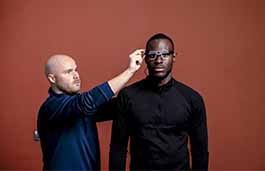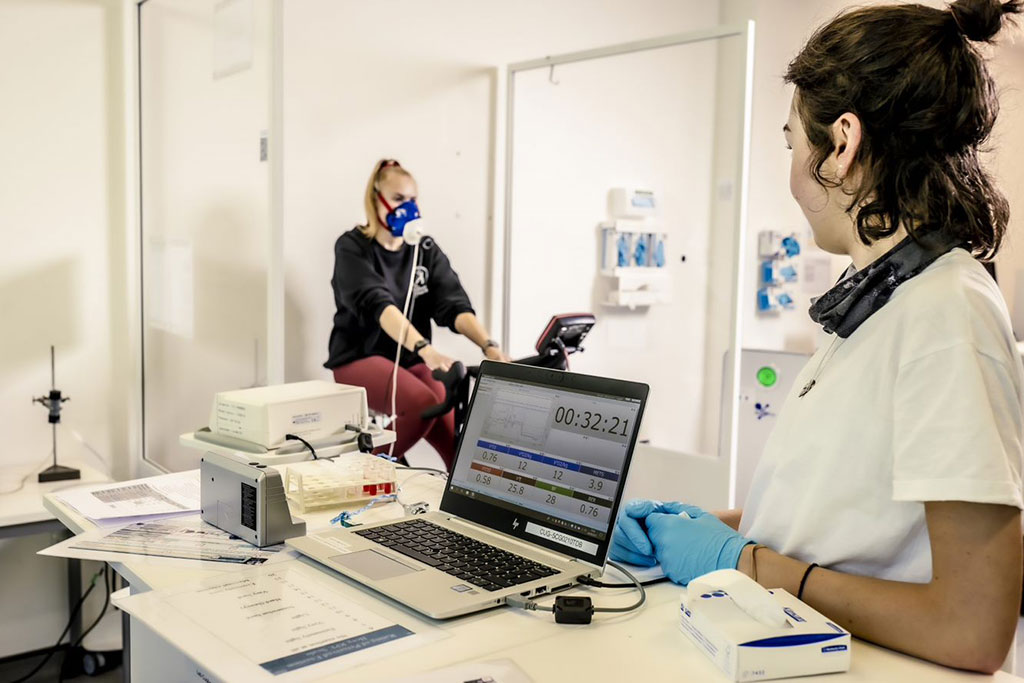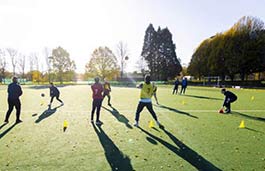Search
Sport and Exercise Science BSc (Hons)
Study level: Undergraduate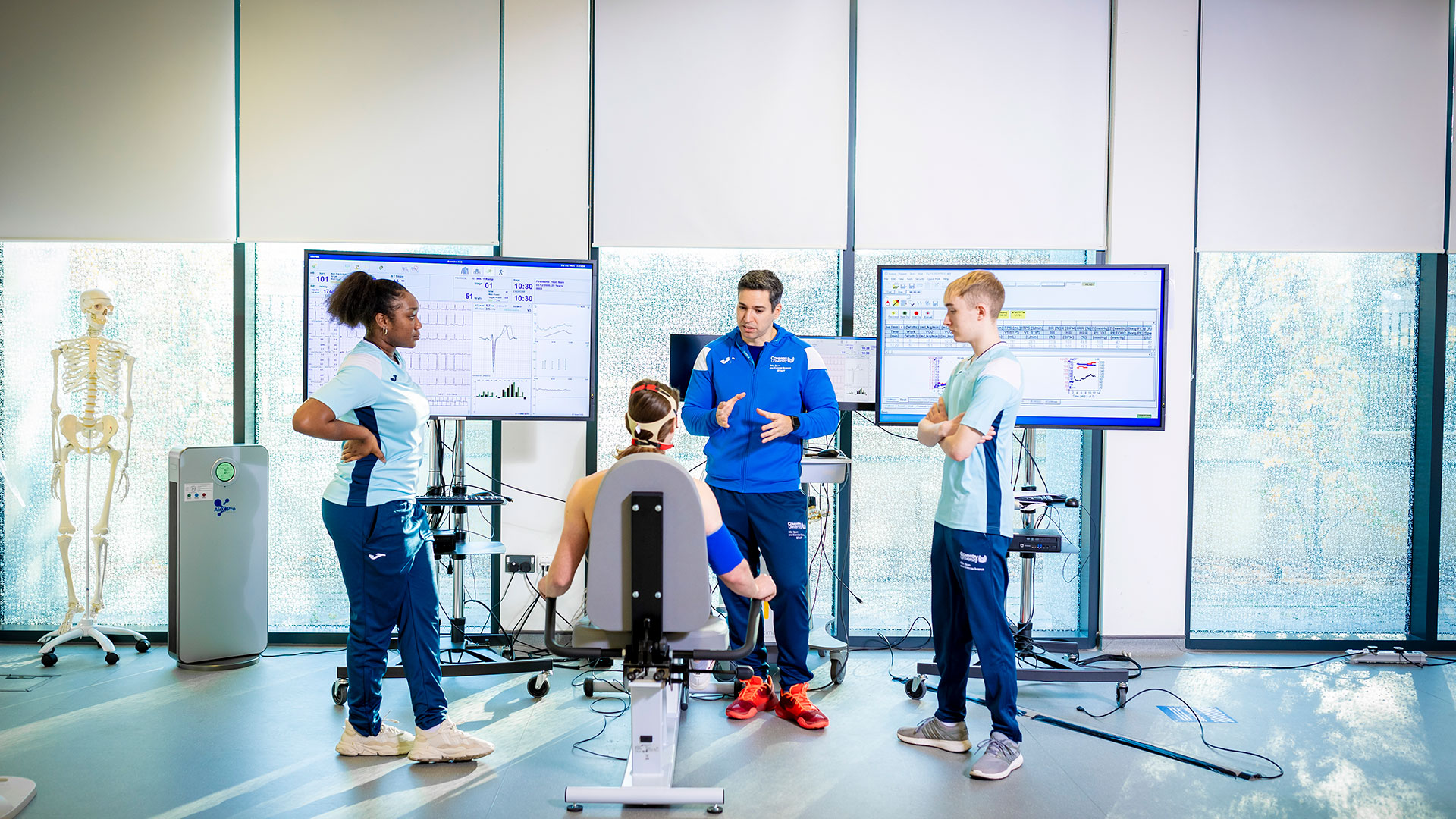
Explore how the human body responds to exercise and understand how sport and physical activity influence health and wellbeing.
Course features
Course option
Year of entry
2026-27
Location
Coventry University (Coventry)
Study mode
Full-time
Sandwich
Duration
3 years full-time
4 years sandwich
UCAS codes
C600
Start date
September 2026
November 2026
January 2027
March 2027
May 2027
July 2027
Course overview
This course explores the impact of physical activity on the human body. Apply scientific principles to enhance performance, aid recovery and promote long-term health and wellbeing, and develop knowledge and skills relevant to roles in sport, fitness and wellbeing.
- This course aims to help you learn using a range of approaches. These include problem-based learning, case studies and laboratory classes, which blend scientific rigour with practical and professional experience and knowledge.4
- Explore the physiological, psychological and biomechanical factors that influence human performance. Develop verbal, non-verbal and active listening skills, and have the opportunity to apply your learning in sport and exercise contexts.
- Develop your skills and ability to prescribe exercise programmes, and then evaluate and monitor their effectiveness on the human body.
Rated Gold Overall
Teaching Excellence Framework (TEF) 20235 QS Stars for Teaching and Facilities
QS Stars University RatingsTop 5 Student City in England (Coventry)
QS Best Student Cities Index 2026Why you should study this course
- Diverse career pathways: gain knowledge and skills relevant to roles in sport, health, education and exercise. Graduates may choose to pursue opportunities in areas such as athlete support, community health or teaching, or continue with postgraduate study in sport and exercise-related fields.
- Hands-on experience: gain invaluable practical experience, including potential opportunities to work with professional athletes.2 Previous students have gained a year of experience with professional sport teams (Southampton FC, Fulham, Coventry City FC, Solihull Moors FC, Birmingham City Women FC), governing bodies (English Institute of Sport) and several local schools.
- Research-informed teaching: learn from active researchers and practitioners who are experts in various areas of sport and exercise science.
- Specialist facilities: utilise our modern laboratories for sport science, biomechanics and our newly refurbished Strength and Conditioning suite, along with a comprehensive range of industry-standard portable equipment for field-based assessments.4
- Strong employer links: benefit from our robust connections with local professional sports teams, schools, and NHS clinical services (such as cardiac and pulmonary rehabilitation).2 Staff act on a consultancy basis working with leading industry partners, elite and novice athletes. Some of our staff are members of leading professional bodies such as BASES, the Higher Education Academy (HEA), and the UK Strength and Conditioning Association (UKSCA; staff are subject to change).
Coventry University welcomes Birmingham City Women FC
The squad of 24 players visited the university’s Alison Gingell building for midseason strength testing.
Find out more
What you'll study
We regularly review our course content, to make it relevant and current for the benefit of our students. For these reasons, course modules may be updated.
How you'll learn
Teaching and learning methods may include:
- lectures
- seminars
- tutorials
- presentations
- group projects
- workshops
- practical workshop sessions
- practical lab sessions.
Teaching contact hours
As a full-time undergraduate student, you will study modules totalling 120 credits each academic year. You will normally study one 30-credit module at a time. A typical 30-credit module requires a total of 300 hours of study made up of teaching contact hours, guided and independent study.
Teaching hours
Teaching hours may vary depending on your year of study and selected modules. During your first year, you can expect 12-15 teaching hours each week. You will also have the option to attend additional sessions, including time with a progress coach or to meet with staff for advice and feedback. As you progress through your studies, teaching hours may reduce.
Guided and independent study
Throughout your studies, you will be expected to spend time in guided and independent study to make up the required study hours per module. You’ll be digging deeper into topics, review what you’ve learned and complete assignments. This can be completed around your personal commitments. As you progress through your studies, you’ll spend more time in independent study.
Online learning
As an innovative university, we use different teaching methods including online tools and emerging technologies. So, some of your teaching hours and assessments may be delivered online.
Assessment
This course will be assessed using a variety of methods which will vary depending upon the module. The assessment methods may include:
- tests
- essays
- group work
- presentations
- reports
- projects
- coursework
- individual assignments
- practical assessment.
The Coventry University Group assessment strategy ensures that our courses are fairly assessed and allows us to monitor student progression towards achieving the intended learning outcomes.
Entry requirements
Typical entry requirements:
Not got the required grades? We offer this degree with an integrated foundation year.
Fees and funding
| Student | Full-time | Part-time |
|---|---|---|
| UK, Ireland*, Channel Islands or Isle of Man | 2026/27 fees TBC 2025/26 fees: £9,535 per year |
Not available |
| EU | 2026/27 fees TBC 2025/26 fees: £9,535 per year with EU Support Bursary** 2026/27 fees TBC 2025/26 fees: £18,300 per year without EU Support Bursary** |
Not available |
| International | 2026/27 fees TBC 2025/26 fees: £18,300 per year |
Not available |
If you choose to study this course with a professional placement2 or study abroad year, you will need to pay a tuition fee3 to cover your academic support throughout your placement year. Students commencing their professional placement in the academic year 2027/28 will pay £1,500 if they are paying UK fees, or £1,800 if they are paying international fees.
For advice and guidance on tuition fees and student loans visit our Undergraduate Finance page and see The University’s Tuition Fee and Refund Terms and Conditions.
The University will charge the tuition fees that are stated in the above table for the first Academic Year of study. The University will review tuition fees each year. For UK (home) students, if Parliament permits an increase in tuition fees, the university may increase fees for each subsequent year of study in line with any such changes. Note that any increase is expected to be in line with inflation.
If you choose to study this course with a professional placement, the University will charge the tuition fees stated above for those on a placement during Academic Year 2027/28. The University will review professional placement tuition fees each year. For UK (home) students, the University may increase fees for each subsequent year of study, but such that it will be no more than 5% above inflation.
For international students, we may increase fees each year, but such increases will be no more than 5% above inflation. If you defer your course start date or have to extend your studies beyond the normal duration of the course (e.g. to repeat a year or resit examinations) the University reserves the right to charge you fees at a higher rate and/or in accordance with any legislative changes during the additional period of study.
We offer a range of International scholarships to students all over the world. For more information, visit our International Scholarships page.
Tuition fees cover the cost of your teaching, assessments, facilities and support services. There may be additional costs not covered by this fee such as accommodation and living costs, recommended reading books, stationery, printing and re-assessments should you need them. Find out what's included in your tuition costs.
The following are additional costs not included in the tuition fees:
- Any optional overseas field trips or visits: £400+ per trip.
- Any costs associated with securing, attending or completing a placement (whether in the UK or abroad).
*Irish student fees
The rights of Irish residents to study in the UK are preserved under the Common Travel Area arrangement. If you are an Irish student and meet the residency criteria, you can study in England, pay the same level of tuition fees as English students and utilise the Tuition Fee Loan.
**EU Support Bursary
Following the UK's exit from the European Union, we are offering financial support to all eligible EU students who wish to study an undergraduate or a postgraduate degree with us full-time. This bursary will be used to offset the cost of your tuition fees to bring them in line with that of UK students. Students studying a degree with a foundation year with us are not eligible for the bursary.
Facilities
This course is delivered at Coventry University main campus, primarily in the Alison Gingell Building.
You will benefit from the outstanding facilities for sport and exercise sciences in the purpose built Alison Gingell building, including extensive sport and exercise science laboratories, gait analysis track and environmental chamber4.
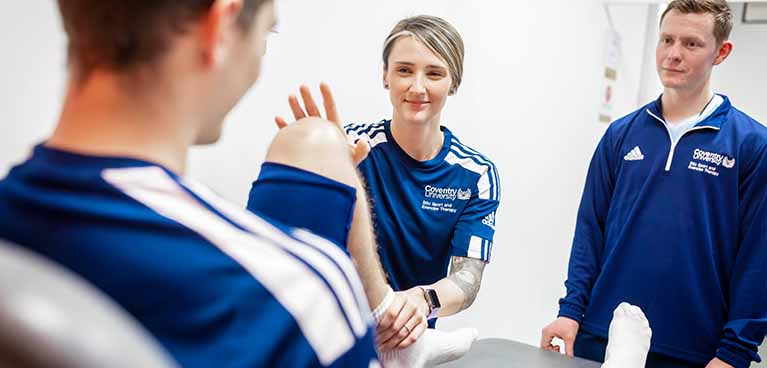
Sports Therapy Clinic
The Sports Therapy Clinic is run by final-year undergraduate Sports Therapy students under the supervision of qualified staff, with second-year students providing a supervised massage clinic.
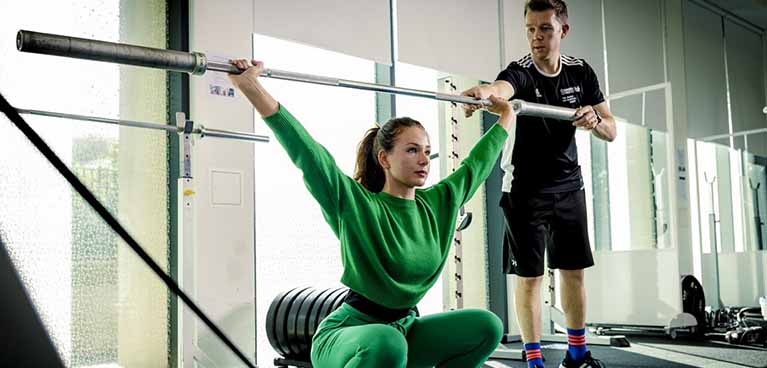
Strength and conditioning suite
Our multi-purpose suite is equipped with multiple Olympic lifting platforms, a 20m gait analysis track, an anti-gravity treadmill and a 3D motion capture system.
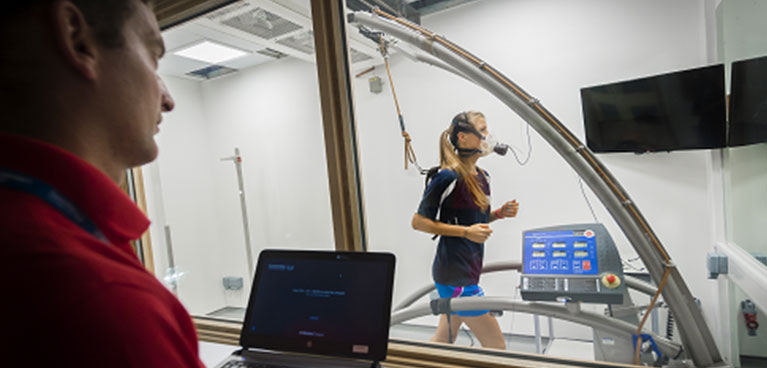
Environmental chamber
Our environmental chamber helps us to test the effects of a wide range of environmental conditions, such as temperature and barometric pressure, on the human body.
Facilities are subject to availability. Access to some facilities (including some teaching and learning spaces) may vary from those advertised and/or may have reduced availability or restrictions where the university is following public authority guidance, decisions or orders.
Careers and opportunities
The multi-disciplinary and applied nature of this degree course aims to prepare you for a potential future career in sport or exercise, including scientific support, exercise training, health promotion and rehabilitation.
On successful completion, you will be able to:
- demonstrate the key skills of a sport and exercise scientist: reflective practice; evidence-based practice; interdisciplinary and multidisciplinary practice; generic and specialised practical skills; health and safety (e.g. good laboratory practice) and ethical considerations
- research, critique and present scientific information to scientific and other recipients
- demonstrate problem solving and apply scientific information
- design and implement scientific investigations, including data collection, analysis and interpretation.
The leisure industry is a major employer in the UK and many of our previous graduates have gone into managerial and service delivery roles in leisure and health centres, as well as teaching and research. Graduates who are more interested in the medical and health applications of exercise science can choose to go on to work within cardiac and other rehabilitation teams within the NHS, or with local councils within sports development or exercise for health schemes.
Where our graduates work
Some of our previous graduates have gone on to work with sports teams including Coventry City FC and British Cycling.
The graduate destinations listed above illustrate potential career paths. You may need to gain additional qualifications or practical experience, pass professional examinations, complete training, cover associated costs and meet specific visa or immigration requirements to secure employment in these fields.
Further study
We have a range of postgraduate courses that graduates would be well prepared to progress onto, enabling them to gain specialist skills relating to development of teaching, sporting potential or lifelong physical activity. PGCE courses allow entry to teaching careers and our more specialist MSc programmes in sport provide opportunities for graduates to develop skills in a more specific area of study.

Discover Phoenix+
Phoenix+ brings you together with other students to learn, experience and develop essential knowledge and skills. Whatever destination you choose, it's about preparing you for life after university.
Learn more about Phoenix+How to apply
You may also like
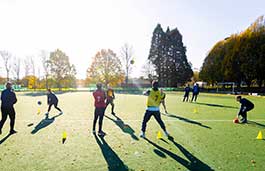
Sports Coaching BSc (Hons)
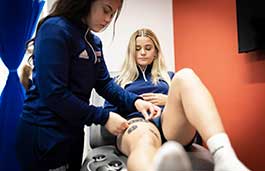
Sports and Exercise Therapy BSc (Hons)
